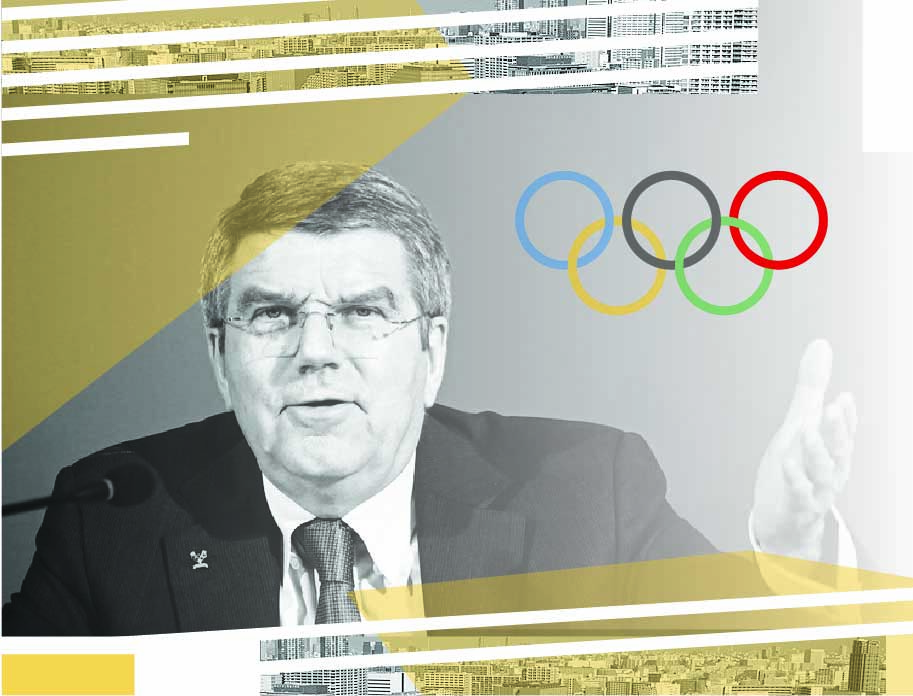
Dr Haim Hagay
Lecturer at The Department of Communication Studies, Kinneret Academic College. His research interests include: the intersection of sports media and nationalism, sports media and gender, sports Journalism and Media Production studies.

Dr. Alina Bernstein
Senior lecturer at the School of Communication of the Academic College of Management School of media studies (COMAS) and the Steve Tisch School of Film and Television, Tel Aviv University, Israel. Her main area of research, in which she has published extensively, is media and sport, including the co-edited book (with Neil Blain) Sport, Media, Culture: Global and Local Dimensions (UK: Frank Cass, 2002) and the co-edited book (with Cornel Sandvoss and Michael Real) Bodies of Discourse: Sport Stars, Mass Media and the Global Public (USA: Peter Lang publishing, 2012).
email: alinabernstein@gmail.com

Section 2: Media Coverage & Representation
- Twitter conversations on Indian female athletes in Tokyo
- ”Unity in Diversity” – The varying media representations of female Olympic athletes
- The Olympic Channel: insights on its distinctive role in Tokyo 2020
- How do we truly interpret the Tokyo Olympic ratings?
- Between sexualization and de-sexualization: the representation of female athletes in Tokyo 2020
- Reshaping the Olympics media coverage through innovation
- An Olympic utopia: separating politics and sport. Primary notes after analyzing the opening ceremony media coverage of mainstream Spanish sport newspapers
- What place is this? Tokyo’s made-for-television Olympics
- The paradox of the parade of nations: A South Korean network’s coverage of the opening ceremony at the 2020 Tokyo Olympics
- Tokyo 2021: the TV Olympics
- Why we need to see the “ugly” in women’s sports
- “The gender-equal games” vs “The IOC is failing black women”: narratives of progress and failure of the 2020 Tokyo Olympics
- Ghana: Poor local organizing, and absence of football team dampens interest
- Megan Rapinoe: The scary Bear for many Americans?
- ‘A Games like no other’: The demise of FTA live Olympic sport?
- Temporality of emotionalizing athletes
- Fandom and digital media during the Tokyo 2020 Olympic Games: A Brazilian perspective using @TimeBrasil Twitter data
- Media wins medal for coverage of athletes as people, instead of entertainers
- Media frames and the ‘humanity’ of athletes
- Reporting at a distance. Stricter working conditions and demands on sports journalists during the Olympics
- New Olympic sports: the mediatization of action sports through the Olympic Games 2020 Tokyo
- Simone Biles, journalistic authority, and the ideology of sports news
- Representations of gender in the live broadcast of the Tokyo Olympics
- Americans on ideological left more engaged in Summer Olympics
- Nigeria: Olympic Games a mystery for rural dwellers in Lagos
- National hierarchy in Israeli Olympic discourses
- Equestrian sports in media through hundred Olympic years. A roundtrip from focus to shade and back again?
- Reshaping the superhuman to the super ordinary: The Tokyo Paralympics in Australian broadcasting media
- Is the Paralympic Games a second-class event?
- The fleeting nature of an Olympic meme: Virality and IOC TV rights
- Tokyo 2020: A look through the screen of Brazilian television
- Is the Paralympic Games a second-class event?
- How digital content creators are shaping meanings about world class para-athletes
- How digital content creators are shaping meanings about world class para-athletes
- Super heroes among us: A brief discussion of using the superhero genre to promote Paralympic Games and athletes
- “Everything seemed very complicated”: Journalist experiences of covering the Tokyo 2020 Paralympic Games
- Representing high performance: Brazilian sports journalists and mass communication professionals discuss their philosophies on producing progressive Paralympic coverage
- Representations of gender in media coverage of the Tokyo 2020 Paralympic Games
A consistent finding in sport media studies is the different coverage women’s sport is given. Any hopes that new media might turn the tide were dashed when empirical studies found that women’s sport is equally under-covered on these new platforms. The rise of female journalists in the previously all-male sports section also failed to remedy any inequalities, with studies suggesting that female sport journalists will predominantly mirror their male peers. However, numerous studies have indicated that during the Olympics, media coverage becomes increasingly more gender equal.
That female journalists can have unmediated interactions with sport consumers online has given rise to a new discursive sphere which challenges the patriarchal hegemonic discourse dominating sport. In a previous study we looked at the different ways that Israeli male and female journalists use Twitter. The findings indicated that despite the potential for an alternative discourse, female journalists had fewer interactions with fans; were tweeting about their personal lives; did not maintain the concept of objectivity and provided less analysis and critical comments. We now seek to examine whether, like in traditional sport discourse, social media discourse too changes during the Olympics. To that end, we sampled and analyzed select tweets by prominent male and female Israeli sport journalists during the Tokyo Olympics and indeed, found that tweeting patterns had changed during the Games, with male and female journalists’ tweets becoming increasingly similar in several aspects, whilst some differences persisted.
One novel trend refers to female journalists’ independent professional commentary that defers to no male authority. Also noteworthy is both male and female journalists’ candor as to the limits of their knowledge. With sports they were not as familiar with, journalists tweeted, “I don’t know enough to say whether they [the shoes] are responsible for these records,” or, “They’re claiming fraud and match fixing. Surfing Twitter, what say you?”. The Olympic Games, therefore, appear to have pushed journalists, at least in Israel, outside their comfort zone of popular sports, whilst legitimizing their asking for help online.
Another trend is journalists’ cross-gender patriotic zeal. During the Olympics, female and male journalists all embraced a patriotic stance. When Israeli athletes started competing, both male and female journalists were tweeting: “Come on! Bring it home!” with wins eliciting ecstatic tweets including, “Yeeeeees!!! What a queen!”, complete with Israeli flag emojis galore. And when Israeli athletes underperformed, journalists’ disappointed tweets soon followed, including, “Noooo!!! Luna’s quit.” All journalists were using the first person plural form so as to include themselves in the national community, e.g. “kept us in the running for medals,” “we were but dreamers,” etc. And so, whilst in normal times patriotic zeal has been declining amongst fans and journalists alike, during the Olympics it became the prevalent sentiment.
One final aspect refers to interactions with Twitter users. Whilst ordinarily, fans were mostly tweeting at male journalists, during the Olympics female sport journalists were not only tweeting at fans about technical matters (competition times, broadcast sync issues), but also on pertinent sport questions about competition rules and professional commentary. Where male and female journalists do differ is in style – whilst female journalists will have polite, measured Twitter interactions, their male peers will take blunt, critical liberties even with fans (“Such farfetched drivel you can hardly take seriously”), colleagues, “shit spawn government mouthpiece, 0 TV knowledge, 0 sports education … ethics of a whore”), and the IOC (“There’s zero sporting merit to this run”).
Another difference is the way emotions are treated. When male journalists tweet about emotion, they favor the third person: “Israelis here in the aisles will struggle to have a cynical take,” “some moving scenes here.” At times, there will be an apologetic undertone to one’s excitement, “I’ve no idea why it’s so exciting, but this is insaaaaaane.” Female journalists, meanwhile, readily embrace an emotional, first-person tone: “I’ve got chills. Tears in my eyes,” “I’m crying here with her.”
The final difference relates to politics. Whilst sampled female journalists avoided tweeting about politics, their male peers criticized politicians who, during the Games, tried to take credit for any sporting triumphs, and even digressed to random political tweeting.
Two elements may account for the gender parallels in tweets during the Olympic Games:
- The sporting field – the Olympic Games become an increasingly gender equal playing field, notably also on social media. Furthermore, the Olympic Games warrant coverage of sports otherwise viewed as ‘unmasculine.’ Therefore, female journalists are perceived as greater authorities on them than in normal times when the sport discourse is anchored in the more ‘masculine’ fields.
- The media arena – Israeli female sport journalists took center stage in the Olympic Games’ television broadcasts, covering both opening and closing ceremonies. Therefore, one might assume that social media authority also comes from the prominence of these female journalists’ voices in older media.

